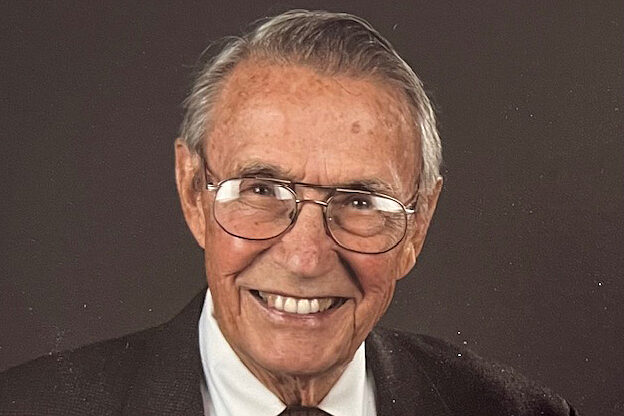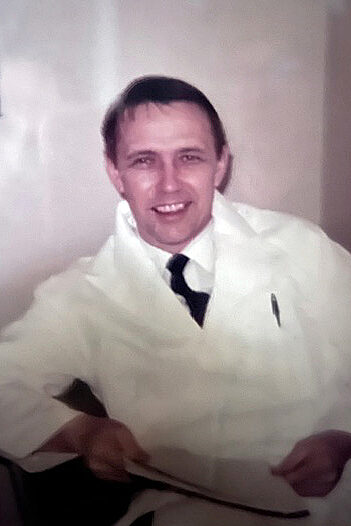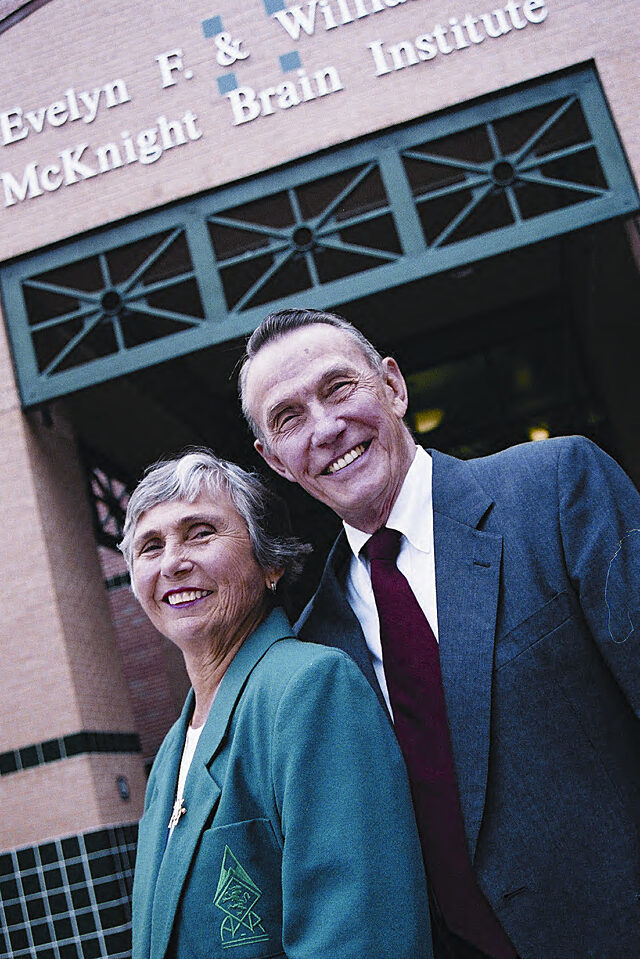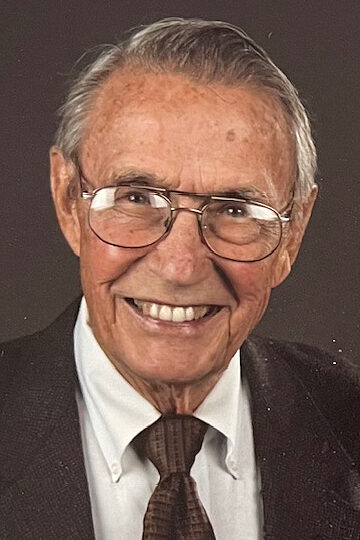Dr. B.J. Wilder, giant in epilepsy field who changed treatment of seizure disorders, dies at 94

Dr. B.J. Wilder changed the way seizure disorders are managed by developing tests for blood levels of anticonvulsant medications.
GAINESVILLE, Fla. — Buna Joe “B.J.” Wilder, M.D., a pioneering neurologist and researcher known for improving the lives of countless people with epilepsy through his discoveries, patient care, teaching and philanthropy, died Nov. 21 at his home in Gainesville. He was 94.
Wilder, who served in dual roles as chief of the neurology service at the Gainesville VA Medical Center and as a professor at the University of Florida College of Medicine, was a giant in his field whose seminal work changed how seizure disorders are managed to this day.
Most notably, he took the guesswork out of dosing drugs to effectively and safely treat seizures by developing tests for blood levels of anticonvulsant medications. In a separate line of research, he helped pave the way for eventual Food and Drug Administration approval of vagus nerve stimulation for treatment-resistant epilepsy, said Giridhar Kalamangalam, M.D., D.Phil., a UF professor of neurology, chief of the epilepsy division and the Wilder Family endowed professor.
“When we write a prescription for someone with seizures, we are basing what we do on the work of B.J. Wilder and his collaborators,” Kalamangalam said. “He set the stage for the systematic treatment of epilepsy with anticonvulsant drugs. There are 60 million people worldwide with epilepsy. I would say virtually every doctor in the world who has ever managed a patient with epilepsy owes something to the work of B.J. Wilder.”
Wilder was born in Birmingham, Alabama, and raised in Gainesville from age 5. An only child who also went by “Joe,” he wrote a letter to his father as a teen asking to attend military school in Gulfport, Mississippi, making a pitch that he’d be better prepared to apply to college and medical school. “He knew at a young age, and he went after it,” said Wilder’s daughter, Karen Wilder Scott.
He earned his bachelor’s and medical degrees at Duke University, where he met his wife, Evelyn Vance, and then interned at Madigan Army Medical Center in Tacoma, Washington. After Army service as a regimental surgeon, he was a surgical resident at the University of Miami and then became a general practitioner in Fernandina Beach, delivering babies, setting broken legs and more.
It wasn’t long before he decided being a jack-of-all-trades wasn’t for him and returned to Gainesville for additional training. Then, a lengthy illness suddenly changed his course: After contracting hepatitis from a surgical patient, his daughter said, he missed the start of his neurosurgical rotation. His next option? Neurology.
“He said that illness was one of the best things that ever happened to him, because he ended up in neurology,” she said. “He believed he was able to pursue his passion for medicine and research so much longer than if he had been a neurosurgeon.”
He followed his neurology residency with a research fellowship in neurophysiology at Stanford. In 1966, he was appointed to the UF faculty and rose to full professor within seven years. Among those he trained during his career are some of today’s recognized leaders in neurology.
“He taught me EEG,” said Steven DeKosky, M.D., deputy director of UF’s Evelyn F. and William L. McKnight Brain Institute, who in the 1970s was one of Wilder’s residents. “He had a pragmatic and witty style of teaching, and he was the master of teaching about epilepsy and antiepileptic medications, especially the newest ones and the ones in clinical trials.”
In his lab, Wilder led pivotal preclinical studies in amphibian models, and he advanced a concept called “kindling” — that is, how a new seizure focus spreads throughout the brain and even across to the other hemisphere, said Jean Cibula, M.D., an associate professor in UF’s department of neurology.
“He was a true translational scientist, working in the lab with animal models to observe and understand how epilepsy develops and then bringing drug and device studies from the lab to human clinical trials,” said Cibula, who was a resident under Wilder in the 1990s and today holds the B.J. and Eve Wilder Professorship in Epilepsy at UF. “He really put UF on the map as far as epilepsy research and drug studies were concerned.”
As a mentor, she said, Wilder challenged his residents to come up with a treatment plan and reason through it. “And even though he was such an amazing eminent researcher, he was really down-to-earth and always had the gift of hospitality,” Cibula said. “He and Eve welcomed residents to their home, had parties for us, and he would often have meals with us.”
At case conferences in the third-floor conference room at the VA (now named the Malcom Randall VA Medical Center), Wilder had an unassuming way of exerting influence. “He’d be sitting there, chewing on an unlit cigar in his cowboy boots, thinking about these cases,” Cibula said. “And he would usually have a very short, succinct comment but always something that was extremely practical and doable for the patient.”
After 27 years on the faculty, Wilder transitioned to emeritus professor, and in 2015, he was honored with the UF Distinguished Achievement Award. He continued to consult at the Tacachale Center for people with developmental disabilities until 2016, when he was 87.
In his later years, Wilder focused his energy on supporting the next generation of epileptologists. He and his wife turned the epilepsy research foundation they started in 1972 into the B.J. and Eve Wilder Family Foundation and, in 2012, created the interdisciplinary Wilder Center for Excellence in Epilepsy Research at UF. Over the years, the family has funded numerous postdoctoral fellowships and professorships.
Beyond his enduring legacy to the field of epilepsy, Wilder is remembered by those close to him as full of life — a prankster out to give people a good laugh and an adventurer who squeezed the most out of each day. His daughter recalls how when their family of five moved to California for his Stanford fellowship, they camped in tents all the way from Gainesville, scooping up buckets of water from rivers and watching Wilder climb out on a rock over the Grand Canyon, thinking he was too close to the edge.
In addition to his daughter Karen, survivors include his children Terry Nicholas and Buna Joe Wilder, Jr., five grandchildren and six great-grandchildren. Evelyn Wilder, his wife of 67 years, died in 2019.
A celebration of life will be held Sunday, Jan. 14, at the Touchdown Terrace at Ben Hill Griffin Stadium.



About the author
